Context
In the Climate Change Act, the UK set a target for reducing its greenhouse gas (GHG) emissions by 80% by 2050 below levels in the base year of 1990— the 2050 target. To insure progress is made along the way to that 2050 target, the Climate Change Committee (“CCC”), established under the Act, determines interim carbon budgets for 5-year periods and advises the government to accept such budgets. The CCC has published 5 carbon budgets covering the periods from 2008 to 2032. The first 4 budgets were accepted by the government and set in law. The 5th budget was published by the CCC in November 2015 and it requires a reduction in GHG emissions in 2030 by 57% relative to 1990. In late June 2016, the government accepted the CCC 5th budget and it is expected to be enacted into law in 2016.
In addition to setting the carbon budgets, under the Infrastructure Act (2015) the CCC is obligated to advise the UK government on the compatibility of exploiting domestic onshore petroleum, including shale gas from fracking, with the UK carbon budgets and the 2050 target.
In other words, can the UK promote fracking and stick to its carbon budgets and 2050 target?
A recent CCC assessment, The compatibility of UK onshore petroleum with meeting the UK’s carbon budgets, concludes “that exploiting shale gas by fracking on a significant scale is not compatible with UK climate targets unless three tests are met.” At 7. We will discuss the three tests. The CCC assessment makes it clear that it addresses only the GHG emission impacts from fracking on the carbon budgets and 2050 target and does not address other issues such as local noise, traffic, water issues, or the wider environmental impacts.
The Tests
Test 1: Well development, production and decommissioning emissions must be strictly limited by tight regulations and close monitoring
Tight regulations must be in place before fracking is allowed to proceed, but the issue is what constitutes “tight regulations”?
The CCC report analyses four cases for various forms of regulation of fracking, discussing what regulations are included within each case. The cases, or scenarios, are: No regulation; current UK position; minimum necessary regulation (includes semi-annual monitoring); and, fuller technical mitigation options. At 54-55. Under estimates from CCC, the ‘Current UK position’ case saves19% of emissions relative to the ‘No regulation’ case, compared with 46% savings under the ‘Minimum necessary regulation’ case and 62% under the ‘Further Technical Mitigation Options’ case (Figure 4.5). At 55. The CCC advises that at least a minimum necessary regulation, more than what exists now, is mandatory before any fracking is allowed to proceed.
The government’s reaction is disturbing. As for the set of tight regulations, the government spokespersons insisted that there were regulations in place and that if, or when, more was needed that would be done. There are significant weasel words in the governmental agency response to Test 1 from CCC:
“We have a very well developed but adaptive regulatory system which allows regulation to grow with the challenges it faces.”
“It is a flexible approach, so as techniques get better, we require the best available techniques to minimise and monitor emissions and we are confident we can regulate the industry effectively.” (See Carrington article in Sources)
In other words, the government says we have not done what you say is necessary before production, but just trust us. If something more is necessary, we’re sure we will do the right thing and require it.
While the CCC insists that tight regulation is critical before fracking starts, the government professes that more regulation is needed only after problems arise, presumably problems like earthquakes, pollution of drinking water sources, air pollution, or health risks.
Of course, the related problem here is that, as the CCC notes, there must be close monitoring as well as tight regulation. Whatever regulations are on the books are useless unless someone with expertise and authority is monitoring their implementation at well sites. The unanswered question is who is going to monitor fracking sites and operations – an outside monitor or self-monitoring by the fracking operators? While the CCC does not address this issue in detail, or expressly call for governmental oversight of fracking operations, it does suggest appointment of a single regulator instead of many departments sharing responsibility for regulatory control of fracking. A similar recommendation was made in reports on fracking from the Royal Society and the Royal Academy of Engineering. See Carrington article in Sources.
The government’s response to such talk is dismissive: this would not happen “for the foreseeable future” and “is not in general an approach the government usually favours.” In other words, that’s not going to happen!
With the scope of fracking unknown and the number of well pads uncertain, it is very hard to imagine how the monitoring of these sites can be implemented, even by the fracking operators. Moreover, the Conservative party’s distaste for government regulation and oversight does not bode well for any commitment to any proactive monitoring or enforcement regime.
The CCC stresses that producers of shale gas also need to be held responsible for decommissioning of wells at the end of the life of the fracking operations. If not, methane leaks would be likely with adverse impacts on carbon budgets and targets. Our earlier comments about the lack of monitoring and enforcement apply equally to decommissioning as to on-going operations.
Based on the US experience, a major source of methane emissions is “super-emitters,” which refers to significant leaks of methane left unchecked for significant periods of time. Despite so-called tight regulations in various US states these large methane leaks occur and go unchecked for protracted periods of time. In parts of the US, evidence shows that 2% of oil and gas sites are responsible for half the methane emissions and that 10% are responsible for 90% of the emissions. Locations of these super-emitters are hard to predict and change over time, but with tight operational control and maintenance procedures these high emitters can be largely eliminated. CCC estimates that annual inspections would reduce leakage by 40%, semi-annual by 60% and quarterly by 80%. Of course without adequate monitoring, the super emitters will escape attention and remediation.
Test 2: UK shale gas production must displace imported gas rather than increasing domestic consumption.
An overriding principle in meeting the carbon budgets and 2050 target is that the consumption of fossil fuels, of all types, must decline over time, first by reducing or eliminating the fossil fuels with the highest carbon content, such as coal without carbon capture and storage (CCS), and then lower-carbon fuels, including natural fracked gas.
While domestic supplies of natural gas are preferable to coal and to imported gas, in terms of security of supply and domestic industry, the CCC insists that any shale gas produced can only be used to replace imported gas not to enlarge on the overall supply. If the fracked gas is distributed and used in addition to existing gas supplies, the carbon budget and target will be destroyed.
The CCC concludes that unless carbon capture and storage (CCS) is implemented for natural gas, it will be very hard to meet the carbon budgets and 2050 target using even just domestic, fracked natural gas. Although natural gas has a lower carbon content than other fossil fuels, it is not low-carbon unless used with CCS.
Unfortunately, the UK recently cancelled a program to fund CCS projects. The CCC recommends that CCS programs are urgently needed if domestic natural gas is to replace imported gas.
Test 3: Additional production emissions from shale gas wells must be offset through reductions elsewhere in the UK economy, such that overall effort to reduce emissions is sufficient to meet carbon budgets.
Despite best efforts at tight regulation and close monitoring, and replacing imported gas with domestic gas, and no additional gas consumption, there likely will be some additional GHG emissions from fracking. How much will depend on the scope of fracking that occurs, should it be allowed. And using domestic gas instead of imported gas raises GHGs because the production occurs in the UK, not overseas.
In the Report the CCC assesses the potential size of a fracking industry, presents scenarios for development of a UK industry and considers the likely impact on gas prices, compares the climate effects of methane and carbon dioxide, and estimates the levels of methane, in terms of its CO2 equivalency, that are expected from fracking. This assessment applies a high-end estimate and a central estimate of the emissions in light of the large uncertainty in the size of any fracking industry established in the UK and its GHG footprint.
If there is uncontrolled expansion of aviation, little or no CCS, or failure to decarbonise heat, for example, then the 2050 target would be at risk and it is very unlikely that there would be scope for additional emissions from shale gas exploitation consistent with meeting carbon budgets or the 2050 target.
Interestingly, the CCC indicates that the impact of UK shale gas on wholesale prices is likely to be small, due to the degree of interconnectedness of the European gas market. Therefore it does not expect a significant impact on gas consumption from lower prices.
The CCC assessment also indicates that fracking should not be allowed in areas that would lead to significant CO2 emissions from land use change, as for example fracking in areas with deep peat soils. In estimating the levels of GHGs the CCC estimates that any fracking in such areas would result in emissions 10 times higher.
Conclusion
The CCC assessment was completed before the Brexit vote and fallout, including the restructuring of Departments where “climate change” disappears and energy appears in a Department focused on industry. Since the CCC calculations of carbon budgets depends in part on the level of emissions covered by the EU Emissions Trading System (ETS), the carbon budgets will need to be adjusted since the UK will be leaving the EU including its ETS.
As for the issue of tight regulations and monitoring, without the influence of the EU on the UK environmental regulatory regime, and the signals that “less regulation” will be a mantra for the new UK government, we will likely see a failure to provide tight regulation and close monitoring for fracking. The new UK government will most certainly fail test #1 in the CCC assessment.
Under the CCC analysis, even if a tight regulatory and close monitoring regime were implemented before fracking began, that is a necessary but not sufficient condition. The other two tests still have to be met before fracking should be permitted and the CCC assessment raises serious questions about the government passing these tests.
For the Republic of Ireland (RoI) and Northern Ireland (NI) the CCC assessment is particularly instructive. Both governments are considering whether to allow fracking and they have jointly committed to a study of the safety of fracking and the regulations necessary for any fracking if deemed safe. But the study ignores the critical question of the place of fracking in the context of the GHG emission targets to which each government is obligated. The question about fracking is not just whether it can be done without harming people and the environment, but also whether it can be done without undermining the commitment to reduce GHGs and avoid the catastrophes of climate change.
Neither the RoI nor NI have fully engaged with the public about the climate change implications of fracking and the governments’ obligations to reduce GHG emissions. Those obligations will likely intensify soon. Like all other EU Members, Ireland may have to increase its reductions to make up for the absence of the UK because of Brexit, and NI’s obligations remain deeply uncertain because of Brexit.
Sources
Climate Change Committee, The compatibility of UK onshore petroleum with meeting the UK’s carbon budgets (7 July 2016). www.theccc.org.uk/publication/onshore-petroleum-the-compatibility-of-uk-onshore-petroleum-with-meeting-carbon-budgets/
“CCC welcomes Government backing for fifth carbon budget and continued ambition to meet 2050 target.” www.theccc.org.uk/2016/06/30/ccc-welcomes-government-backing-for-fifth-carbon-budget-and-continued-ambition-to-meet-2050-target/
Damian Carrington, “Fracking ‘will break UK climate targets unless rules are made stricter’,” The Guardian (7 July 2016). www.theguardian.com/environment/2016/jul/07/fracking-uk-climate-targets-rules-stricter
“Brexit will force EU countries ‘to make deeper, costlier carbon cuts’,” The Guardian (14 July 2016). www.theguardian.com/environment/2016/jul/14/brexit-will-force-eu-countries-to-make-deeper-costlier-carbon-cuts
Zachary Davies Boren, “How Brexit could make it easier to frack in the UK,” Greenpeace (21 June 2016). energydesk.greenpeace.org/2016/06/21/how-brexit-could-make-it-easier-to-frack-in-the-uk/
Adam Vaughan, “Abolition of Decc ‘major setback for UK’s climate change efforts’,” The Guardian (15 July 2016). www.theguardian.com/environment/2016/jul/15/decc-abolition-major-setback-for-uk-climate-change-efforts
Karolin Schaps, “UK could ramp up fracking to boost post-Brexit energy supplies,” Irish Independent (20 July 2016). www.independent.ie/business/irish/uk-could-ramp-up-fracking-to-boost-postbrexit-energy-supplies-34897482.html


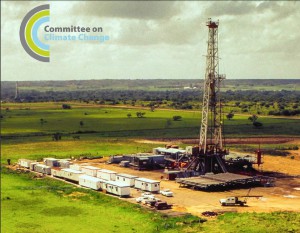
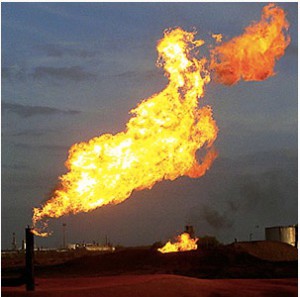
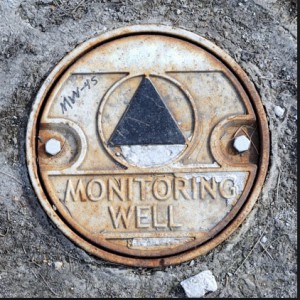
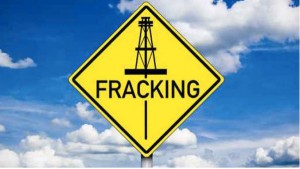
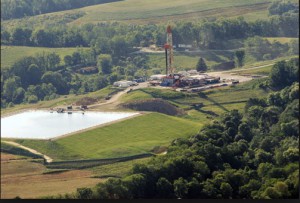
No comments yet, add your own below